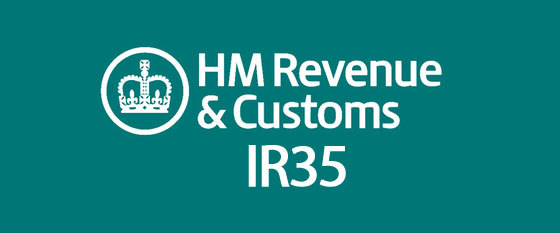IR35: The Latest HMRC Fiasco

IR35: The Latest HMRC Fiasco
Guest Blog from Raffingers.
As you are all most probably aware the new rules for IR35 started from April 17 for those working through their own personal service company and working for the public sector. I’m interested to see if these rules will extend to the private sector over the next few years, which will have a huge impact on the contractor industry. My views have been mixed, however the more I read comments from experts in this area and attended various events; I think it’s only a matter of time before the private sector falls in line with their public sector counterparts.
These new rules haven’t really affected a lot of my clients as not many work for the public sector, however the BBC has been affected by virtue of having to comply with the Freedom of Information Act. As a result, I found myself at the new BBC Headquarters last week near Oxford Circus listening to a tax expert from Deloitte. He tried to explain to the audience quite complicated changes in the tax rules and how they will affect them going forward. The expert didn’t get off to a great start by assuming that all of the BBC workers’ contracts had been reviewed by the BBC and he was there just to educate everyone about their new tax regime. The BBC had clearly not reviewed their workers’ contracts, although the expert did make a very good point that it was not the BBC at fault but HMRC for releasing the CEST (Check for Employment Status Test) six months late, and expecting the BBC to have reviewed thousands of workers within a two month period.
The BBC has tried to deal with the changes and thankfully are paying all their workers gross of tax. Indeed, this helps in the short term, but if once they apply the CEST they find that the worker is not considered self-employed, they will then need to back date the tax to April. Now this could cause a huge problem if after say nine months the test is applied, and nine months’ worth of tax is deducted from the next payment. This could potentially leave the worker without “salary” for a few months whilst the tax is being clawed back. I do understand that this is tax that the personal service company would have to pay anyway, but from a cashflow timing point of view, this could be disastrous for the worker.
I would therefore recommend anyone caught by this to push for their client to run the CEST as soon as possible, and to ascertain whether they are self-employed. This will show whether nothing changes or whether the worker is deemed as an employee and tax will need to be deducted at source. There is a small glimmer of hope if you are caught out by the new rules as you can appeal to HMRC. If you are able to demonstrate that you are self-employed and there were circumstances that your client was not aware of and therefore might have completed the CEST incorrectly. For example, the CEST does not ask if you have any other clients that you work for, which would point to self-employment. If this is not an option then you can always correct the annual accounts if you believe you are not caught by IR35 and deal with HMRC accordingly.
It is going to be very interesting over the next year whether these rules will be extended to the private sector. It was heard that Theresa May wanted to get “her own house in order” before embarking on the private sector. However, with the pending Brexit issues on the horizon will she shake up the contractor market or will the billions of pounds this will raise for the very empty coffers cause her to steam role this through like her other initiatives against tax avoidance. We are also expecting Matthew Taylor’s (Chief Executive of the Royal Society of the Arts) report who is leading the review to consider how employment practices need to change in order to keep pace with modern business models. The review will consider the implications of new forms of work, driven by digital platforms, for employee rights and responsibilities, employer freedoms and obligations, and our existing regulatory framework surrounding employment. This report is expected next month and will make interesting reading.
Watch this space.
For further information or advice regarding IR35, contact me at lee.manning@raffingers.co.uk.
